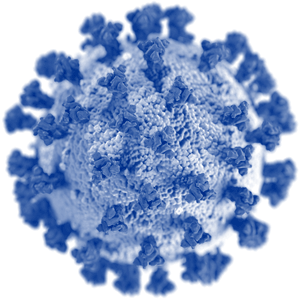 This week’s reporting on COVID-19 tells us that over 1.5 million US residents have tested positive for the disease and over 90,000 have been confirmed to have died from it. Such figures fail to count those who have not presented symptoms sufficient to warrant testing nor those whose deaths fell outside the net of COVID-19 tracking. The elderly and those who are immunocompromised represent a disproportionate percent of deaths. And there is no end in sight.
This week’s reporting on COVID-19 tells us that over 1.5 million US residents have tested positive for the disease and over 90,000 have been confirmed to have died from it. Such figures fail to count those who have not presented symptoms sufficient to warrant testing nor those whose deaths fell outside the net of COVID-19 tracking. The elderly and those who are immunocompromised represent a disproportionate percent of deaths. And there is no end in sight.
As a member of a household with above-average risk of severe infection, I’m paying close attention to actions we can take to help our bodies prepare for the “fight of their lives” should it come to it. A prime focus centers on our diet. Here’s why…
Scientists tell us that the COVID-19 virus enters the body principally through the nose and mouth; it uses lung tissue as its initial breeding ground. So, the first line of defense against the invader must be the mucosal membranes of the oral cavity and respiratory tracts. These membranes fight infection by secreting Type A antibodies (called secretary immunoglobulin A or SIgA). According to a study published by the University of Western Sydney, we can boost our SIgA response by consuming mushrooms. Healthy volunteers who added one cup of mushrooms to their daily diet showed 50% more Type A antibody secretion than the control group. [See Note 1.]
Should a virus break through mucosal membrane fortification, the body’s innate and adaptive immune responses go into action. Our innate immune response avails itself of natural killer cells that target pathogens, including viruses responsible for common respiratory infections. The adaptive immune response designs and produces antibodies that are custom-tailored to combat specific invaders. For proper functioning, the adaptive response must be sufficiently nimble to ramp up production during the window of opportunity in which the infection can be contained without going on overdrive and recklessly attacking its own vital tissues.
I used to think that the immune system was something that was genetically pre-determined. You either had a good one, or you didn’t. But it turns out that its functioning has a great deal to do with the quality of the microbiome in our intestinal tract. As discussed in a prior post, the microbiome plays an active role in digestion, vitamin and amino acid production, and metabolic regulation. With advancing technology, scientists can now trace the extent to which the microbiota and immune system work symbiotically to provide for the body’s response to microbial threat and maintenance of overall health. [See Note 2.] In short, a well-functioning microbiome provides the means for favorable gene expression and serves a crucial role in immune homeostasis. To that end, we must pay close attention to what we eat.
 Here are a handful of evidence-based recommendations:
Here are a handful of evidence-based recommendations:
Eat 5-7 servings of fruits and vegetables daily. While immune function tends to decline in older adults, one study considered the possibility that older adults are simply getting too few servings of fruits and vegetables daily. It traced the efficacy of vaccine-induced antibody response in two groups of older adults: one ate 5 or more servings of fruits and vegetables daily, and the other only 2. The former demonstrated a 2.5x boost in immune response versus the latter. [See Note 3.] Word to the wise: Eat a colorful assortment of produce to maximize phytonutrient diversity and make your meals interesting.
Make sure your diet includes plenty of fiber. Undigested complex carbohydrates elevate production of short-chain fatty acids (SCFAs) that serve as energy sources for the gut microbiota and intestinal epithelial cells. Epithelial cells serve as gatekeepers that permit absorption of healthy substances into the body and block entrance to harmful ones. To that end, load up on whole grains, legumes, fruits, and vegetables.
Add immune-boosting superstars to your diet, notably mushrooms, bitter greens, garlic, green tea, and kiwifruit.
Add a tablespoon of ground flax seeds to your daily regimen. They’re loaded with anti-inflammatory omega-3 fatty acids and aid in the absorption of fat-soluble vitamins like A, D and E, all of which are crucial for immune health.
Avoid highly processed and fried foods as they increase inflammation, deplete nutrients, and dampen immune response.
Finally, a study published through the CUNY School of Public Health explored the health advantages of a strict vegan diet over vegetarian or healthy omnivore alternatives. [See Note 4.] It found that the vegan microbiota showed reduced levels of resident microbes with pathogenic potential and a greater abundance of protective species. The vegan microbiota was also associated with reduced inflammation and lowered the risk of arteriosclerosis.
Notes: